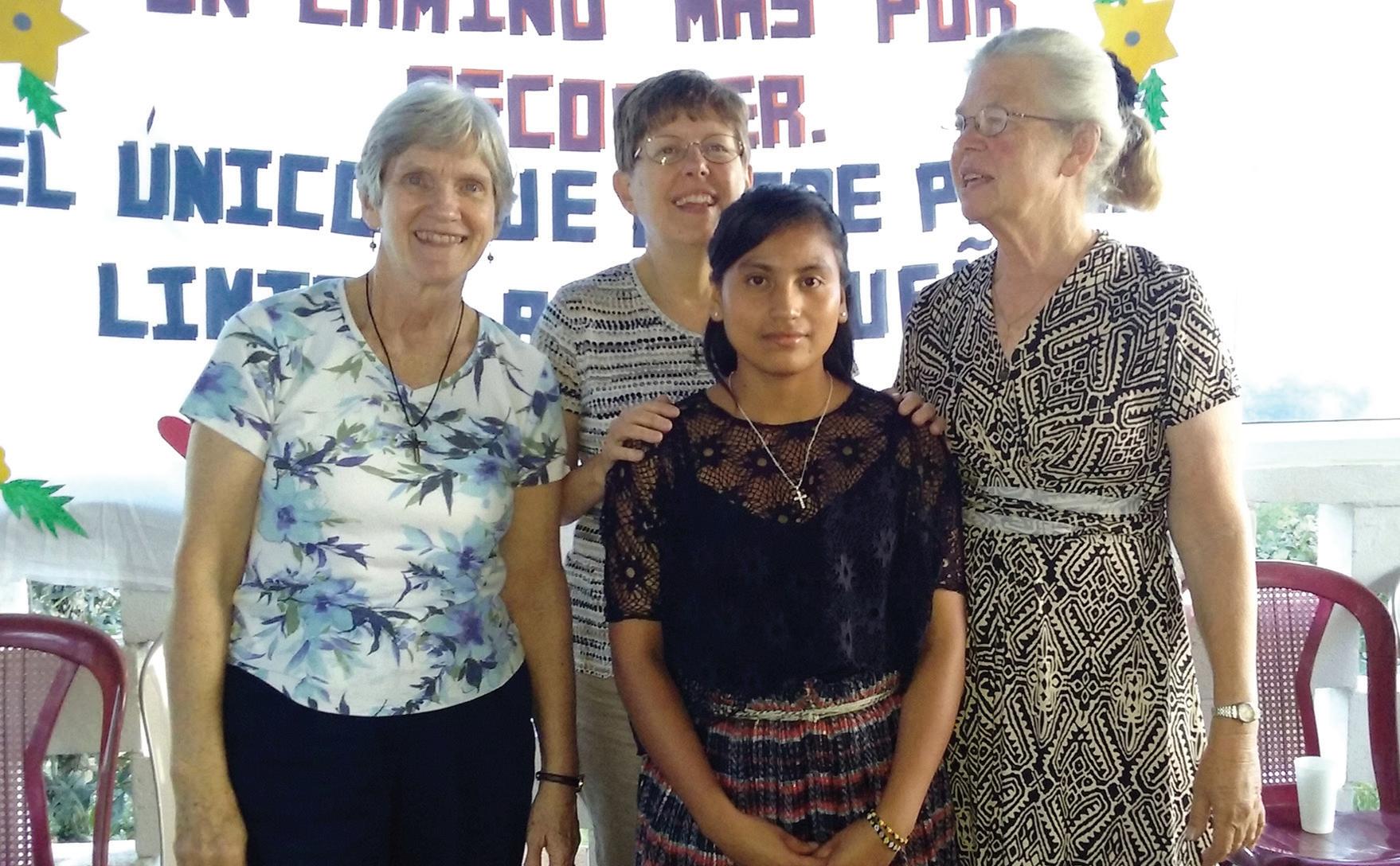
2 minute read
Precious Blood Ministry of Reconciliation: Focused on healing

One by one, people walked to the front of the room, carrying wooden crosses with the names of their loved ones written on the front and sides. Holding their mothers, fathers, children, sisters, brothers, friends in their hands, each person spoke the name of their loved one aloud for all to hear and carefully placed their cross on the wall of remembrance.
I watched as a young girl, whom I have come to know quite well these past few years, walked up and spoke name after name into the microphone. She took her time, didn’t rush, and made sure to read every name carefully and with intention. Not yet 18 years old, and this little girl read upwards of 15 names. Hot tears streamed down my face.
One of my greatest joys of being at PBMR is working with the youth — particularly the young women. They are brilliant, strong, creative, wise individuals who never cease to amaze me day after day.
But in moments like these, I am reminded of the invisible, unbelievably heavy burden of trauma and pain that these young people carry. Because of the neighborhoods they’re born into, the dangers they face, and the color of their skin, they are burdened with a level of grief and loss that I will never fully understand. These kinds of wounds live beneath the surface — no one can see the trauma that another person carries — and yet our wounds are crying out for someone to see, touch and heal the broken pieces of our hearts. But where, when, and by whom can we let ourselves truly be seen? Is there anywhere or anyone safe enough to let our walls down and share our sorrow?
One mother spoke about how, before leaving the house, she puts on a full face of makeup in hopes of covering up the pain and depression that she battles daily. Here in this room, her tears wiped away this protective mask, and she shared how losing her husband, sister and son, coupled with the stress of struggling to take care of her family, often feels like too much to bear. Folks in the front and back of the room nodded in understanding, communicating that they too feel what she feels. By sharing our wounds with one another, we didn’t sink from grief, but found community and solidarity which kept us afloat. There is a deep need and hunger for sharing our wounds in the context of community — to let down walls and unpack the hurt. I also believe that spaces safe enough for this type of healing are few and far between, especially for folks in our neighborhood. People have been hurt time after time, from such young ages. While safety is a basic
— continued on Page 14
Story by Holly O’Hara, Coordinator of Communications, Precious
Blood
Ministry of Reconciliation
and a candidate the
for
Precious Blood
the
Sisters of










